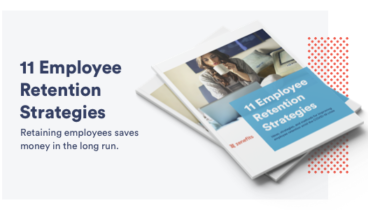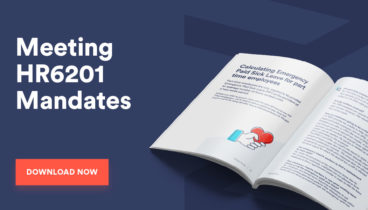An in-depth look into one of the most behind-the-scenes departments.

Here's what you need to know:
-
Our lips are sealed when it comes to confidential information
-
You think after hours behavior shouldn’t count against you — we disagree
-
Our job is to protect and serve: we protect the company from charges of discrimination and harassment and protect colleagues from unwanted attention, scrutiny, and unfairness
-
HR professionals make judgment calls all day long, and first impressions matter
-
Are we rigid? Yes, we have to be. HR knows how even the slightest mistake can have overwhelming consequences
-
When employees ask for the unreasonable, we’re inscrutable
-
We may do the bulk of our work behind the scenes, but our sails ripple throughout every organization and its employees
You see Riia’s byline all around Workest, but did you know she has more than 15 years of HR experience? We asked her to pen this essay about things only HR professional would understand. Enjoy!
Businesses run to their own rhythm and rules. Some are highly charged and fast-paced with minimal structure; others are slow, deliberative, and intentional. While organizations move toward a common goal, departments set their own pace and structure. Baked into this are the unwritten rules and norms each group sets.
Creative teams may shun corporate setups; accounting departments avoid heavy metal music. Each group sets unwritten code for what is acceptable. Sometimes others don’t know the rules of the game when you’re on their turf. You may be allowed a misstep or two in some departments, but for HR professionals, many rules are set in stone.
Here are 7 unwritten codes HR abides by.
1. Our brand is silence
Confidentiality is king to HR. No matter how funny the story (they can be hilarious), we’re not telling. It may be the juiciest office gossip you’ve heard this year (sometimes it’s epic), but mum’s the word. Employees complain their request for elective surgery (you know which kind) was denied by the carrier — we’re not talking about it. Workers asking for help disconnecting from an adulterous office liaison? Our lips are sealed. Don’t even bother asking why Joe from finance abruptly left the company (with a security guard escort) in the middle of the afternoon. We’re not telling.
It’s not that we’re not dying to tell you the reason we didn’t hire the friend you recommended for that customer service position was that they dropped the f*bomb at least 14 times during the interview. The response you’ll get from us is the same: I’m sorry, I can’t discuss confidential personnel matters. You politely suggest they talk to their friend about the interview and how it went. They respond they have, and their friend thought they’d nailed it. You expand and tell them, “you wouldn’t want me to discuss your private information with others, would you?”
Confidential information passes our desks daily — from 9 to 5 and sometimes after hours — but no one will be discussing it outside the group. Like doctor-patient confidentiality, the rules in HR are firm; you may talk to colleagues within the group for advice and counsel, but nothing goes outside our doors.
We may share stories with each other because we’re human. If we don’t tell another HR pro that you had to cut an interview short because of tear-inducing halitosis (the interviewee’s, not yours) we may explode. But face it: HR is a clique, because we have to be.
We may be the most behind-the-scenes department in most organizations, but our reach is company-wide.
2. We’re the office party buzzkill
…and we know it. We know you’re asking us to hang out after work out of politeness when we happen upon your conversation. Don’t worry, we won’t accept. We know that after hours we’re as welcome as cops at a rave. You want to let loose, diss the boss and the company — we get it. We do it too, just with each other and our families, though. So don’t worry that we’ll put a damper on casual get-togethers, we know we’re not welcome and that’s okay.
At office parties, which we often are the ones to create or at least approve, we know you’re watching us to make sure we’re not watching you. You may not even be doing something against the rules, but you still don’t want us to see. We understand; you think after hours behavior shouldn’t count against you, and we used to agree. But then the laws changed and the lawsuits began. Why do we have to “ruin everything for everyone?” It’s in our job description, because …
3. Everything is a potential charge
Our job is to protect and serve: we protect the company from charges of discrimination and harassment. We protect you and your colleagues from unwanted attention, scrutiny, and unfairness.
We’re looking for harassment and discrimination under every rock and behind every innuendo. Is that a leer or a smile? Are you touching that coworker or steering them toward the meeting — either way, let’s go with the flight attendant pointing system rather than the hand on the back. Do we want to look for suggestive content everywhere? Is it fun to deconstruct a joke going around the office to ensure it’s suitable for all audiences? Not really, but like the unappreciated Motion Picture Association of America, everything here has to be PG. No, not PG-13. Sorry!
Our job is to protect and serve: we protect the company from charges of discrimination and harassment. We protect you and your colleagues from unwanted attention, scrutiny, and unfairness. And, as we protect you, we protect the organization as a whole and your paycheck in particular. We’ve got your back, whether you like it or not.
4. Yes, first impressions matter
HR professionals make judgment calls all day long. Will this candidate be a good fit for the opening? Does this employee’s excuse for being late ring true? Is this worker ready for a promotion? We look at what’s on paper and what’s before us. The best HR professionals have honed their “people skills” and can spot a bit of puffery a mile away. You moved from cashier to regional manager in 4 weeks at your last job? Interesting.
Walk into an interview 5 minutes late and we’ll probably look the other way. Show up 15 minutes late and you’ve lost our interest. If you want to be taken seriously for the position, don’t flirt with the interviewer. If you want us to believe you have a legitimate need for a requested leave, take down the travel posters from your cubicle wall. We’re trained professionals, evaluating what’s being said, and what’s not.
5. We’re as serious as a heart attack
When we make mistakes, the fallout can be devastating. A bad hire can set a department back weeks, months, or even years. If we don’t bother doing that reference check, you could end up with a colleague who’s been terminated, repeatedly, for behavior. If we don’t check credentials correctly, an IT worker who’s an actual fraud could crash the system and lay online commerce bare.
Failure to quickly and effectively address a complaint could mean an EEO charge, lawsuits, and fines levied, and the company ruined in the media. HR knows the gravity of the work they do, and how even the slightest mistake can have overwhelming consequences. Are we rigid? Yes, we have to be. When we mess up everyone may have to pay, including ourselves and our careers.
6. Poker face is our only face
When employees ask for the unreasonable, we’re inscrutable. When a candidate tells us they didn’t go to 4 years of college to answer their own phone, we nod graciously and take note. HR professionals know facial expressions and physical gestures are a tell, and we’re not getting caught on the wrong side of them.
When an employee lets us know they’re considering not returning from paid leave of absence, we’re deadpan. When they ask for a promotion after only a week on the job, we calmly say, “We’ll look into it.” We’re not giving away anything: the best you’ll get is the occasional involuntary raised eyebrow, but even those may leave you wondering if we’re shocked, excited, or just have a nervous tic.
The best way to blow it in HR is to react. “She did WHAT???” may be the reaction of your friends and family. For HR staff, “I’m sorry you’re upset. This will need further investigation. Can you give me more details?” is the appropriate response for us to give.
We’re not giving away anything: the best you’ll get is the occasional involuntary raised eyebrow, but even those may leave you wondering if we’re shocked, excited, or just have a nervous tic.
7. We have the power to make or break an organization
HR can hire talent that delivers innovation and growth, or mediocre hires that balk at the stagnation they’ve created. HR’s response to concerns and complaints can lead to resolution or ruination. We push for learning and development resources — not to waste company funds, but to grow our workforce and its capabilities. We counsel, coach, and develop staffers to be productive, respected, and valued team members — not drains on morale and resources. Every employee has our access and attention, from unpaid interns to the CEO.
We may be the most behind-the-scenes department in most organizations, but our reach is company-wide. And with that power comes responsibility.
We:
- Advocate for employee rights and protections
- Negotiate benefits that put employees and their families on track for physical, mental, and financial wellness
- Push for development that grows individuals and teams
- Support learning that propels careers, sometimes even outside our doors
- Promote a culture of respect, professionalism, and opportunity
We may do the bulk of our work behind the scenes, but our sails ripple throughout every organization and its employees and we know the responsibility that holds.






